2020 marks 70 years since the start of the Korean war, a war that has never formally ended and many believe has been forgotten.
At the end of the Second World War, Korea was liberated from Japanese control having been occupied by Japan since 1910.
Following the end of Japanese occupation in 1945 it was agreed by the United States and the Soviet Union to divide Korea into two occupation zones due to concerns of ‘spheres of influence’. A temporary internal border was created in 1948 between North and South Korea based on the 38th parallel – the circle of latitude that is 38 degrees north of the equator.
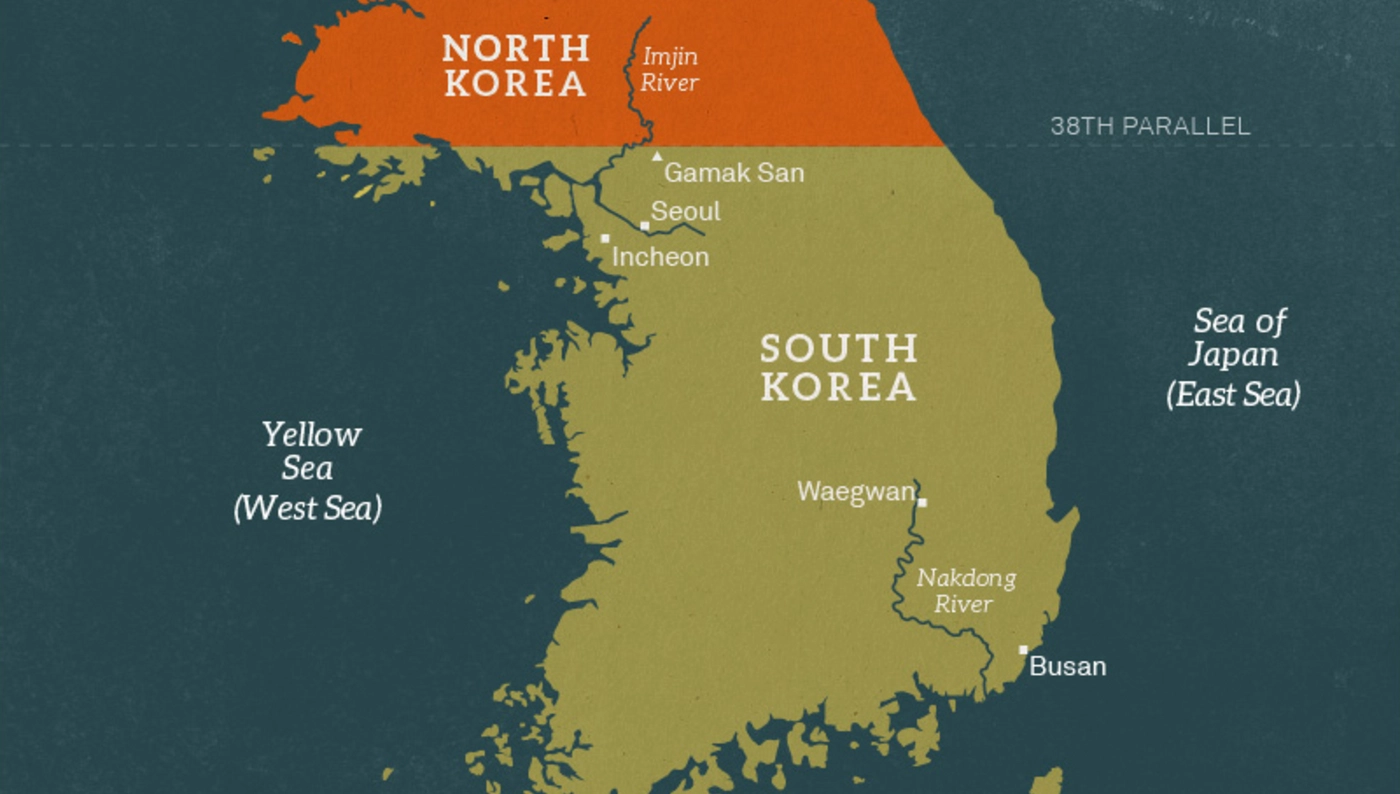
As a result, two separate states were created. The North of the country became the communist Democratic People’s Republic of Korea led by Kim Il-sung with support from the Soviet Union, whilst the South became the American backed Republic of Korea led by Syngman Rhee.
The following year in 1949 both the Soviet Union and America withdrew their forces from Korea, but tensions continued to rise in the region. Both newly created governments claimed sole legitimate rule over all of Korea and neither accepted the border as permanent.
By 1950 the situation had reached boiling point and in the early hours of 25 June 1950 North Korea invaded South Korea.
The United Nations (UN) Security Council was quick to respond and called on all members to help the South. American quickly sent forces to support the country followed by further UN support of troops from 17 countries including Australia, Canada, France, the Philippines, Ethiopia, Turkey, New Zealand, South Africa, Colombia and Great Britain.
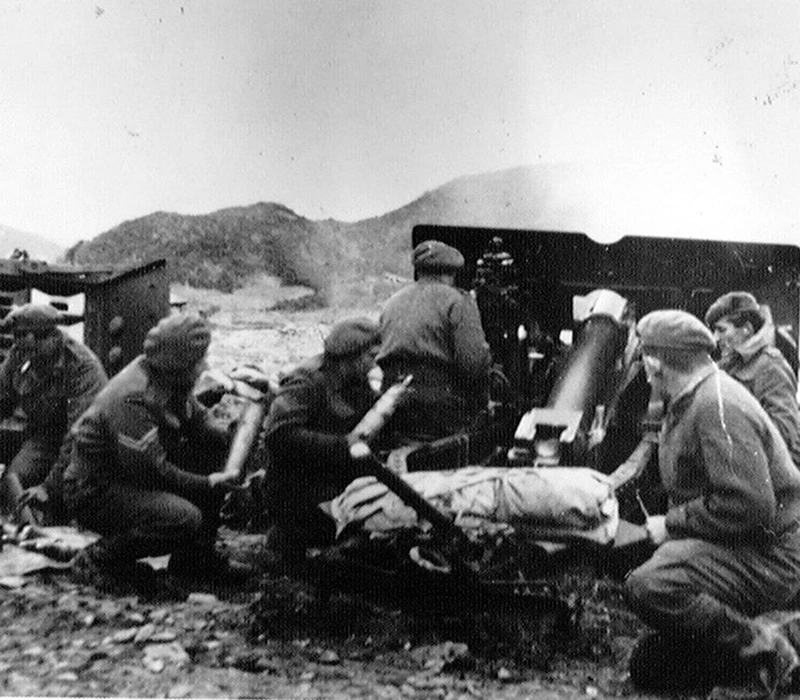
I think that it’s a forgotten war...we’ve sort of been overshadowed because it was so close to WW2.Private Cedric `Ned' EgglestoneRoyal Australian Infantry Corps during the Korean War.
Troops arrive from around the world
In August 1950 British troops arrived in Busan and were sent straight into battle with other UN forces who had been holding their position and launched a counter-attack.
By early September 1950, the South Korean and UN forces were facing defeat as North Korean forces pinned them against the southern coastal port of Busan. In response on 15 September 1950, the United Nations Commander General MacArthur ordered an amphibious landing at Incheon, a port halfway up the Korean peninsula, behind enemy lines. The landing allowed UN forces to make rapid progress north during the autumn of 1950, nearing the Chinese border by November.
Alarmed by the proximity of South Korean and UN troops to their border China entered the war, sending forces into North Korea pushing the UN Forces back into the south.
Despite some initial success Chinese forces lost some ground to South Korea and the UN forces in early 1951 and launched a spring offensive to push back in April 1951.
On 22 April Chinese forces attacked the British 29th Brigade, which was supported by Belgian forces along the Imjin River. Despite being heavily outnumbered troops of the 1st Battalion, Gloucestershire Regiment, led by Lieutenant Colonel Carne, defended Hill 235 on the river for three days before they were forced them to retreat amid heavy casualties. Chinese forces took 527 Prisoners of War, including Colonel Carne himself.
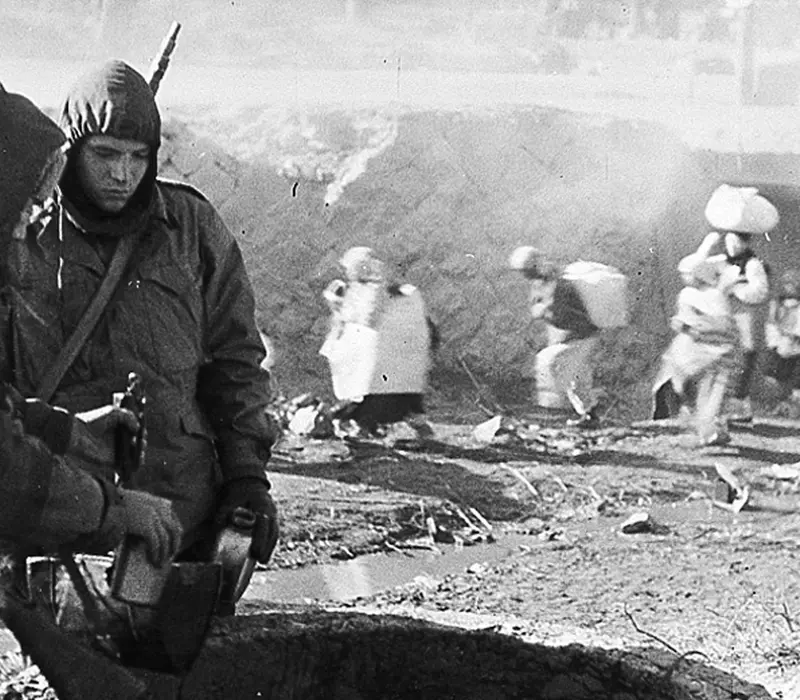
At the Imjin when the battalion folded and the order came...every man for himself...that was frightening...Thomas Ashley Cunningham-BootheThe 1st Bn Royal Northumberland Fusiliers.
Battle of Imjin River
After Imjin, and with mounting casualties, the fighting stalled in early 1951 and armistice negotiations began. For the next two years troops faced a stalemate near the border, in trenches a little more than a mile apart they faced extreme conditions of cold and hot weather.
Finally, in July 1953 an armistice agreement was signed, but there was no peace treaty.
Nearly 60,000 British combat troops saw action during the war in Korea, they came from both the regular army and national servicemen. The war saw heavy casualties, 1,100 British soldiers were killed and 37,000 Americans lost their lives. Korean casualties were much higher. Estimates suggest the North alone lost 11% of its population, while 227,000 South Korean troops died and civilian casualties were even higher.
To this day the Korean War has not officially ended, tensions still run high between North and South Korea and US forces remain in the south serving along one of the most heavily militarised borders in the world.
70 years on many veterans of the conflict feel the war in Korea is the ‘forgotten war’ overshadowed by the Second World War and the subsequent events of the Cold War.
But for those who fought and experienced it, and live with its legacy today, it should never be forgotten.
*Images courtesy of The National Army Museum, London.


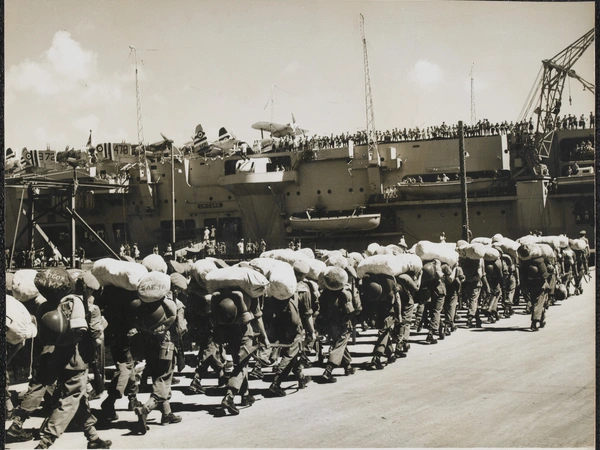
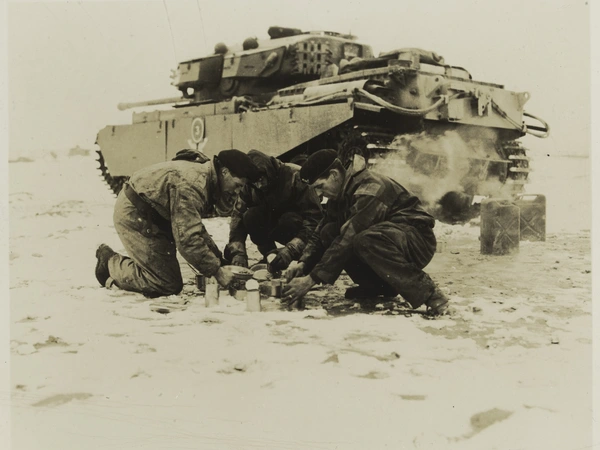
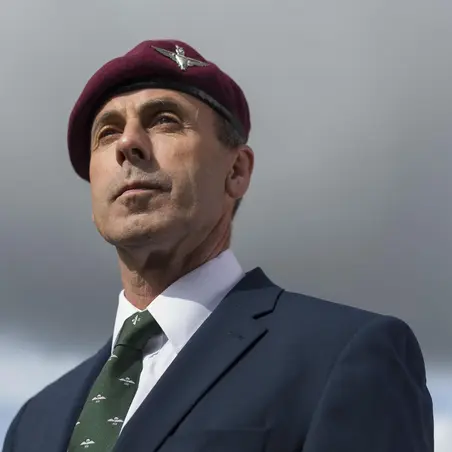
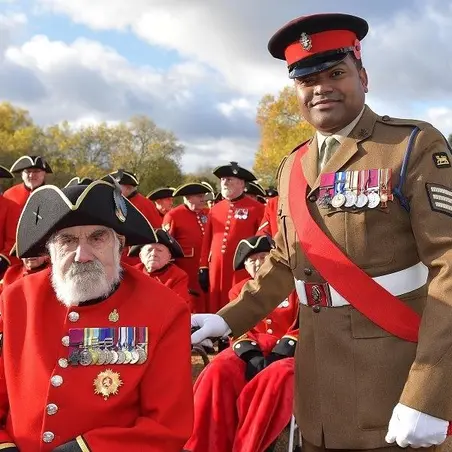
.jpg?sfvrsn=fe121cb1_4&method=CropCropArguments&width=452&height=452&Signature=9D9A1DCC78C0501619B0F0BA961181E1EE9EFEEF)